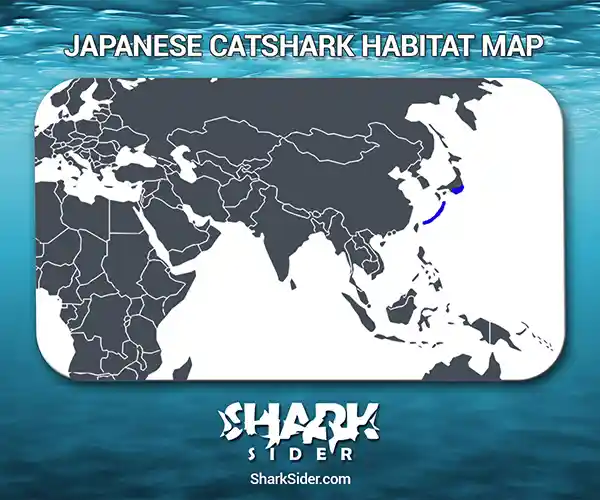The Japanese catshark is a ground shark living off the coast of Japan. It is named after the country where it is found.
Japanese Catshark Scientific Classification |
|
| Kingdom | Animalia |
| Phylum | Chordata |
| Class | Chondrichthyes |
| Order | Carcharhiniformes |
| Family | Scyliorhinidae |
| Genus | Apristurus |
| Scientific Name | A. japonicus |
Description
This species’s largest ever recorded specimen was about 2.3 ft long, though the average is about 2.1 ft. Its snout comprises 7-8% of the shark’s total length and is broad and shaped like a bell.
Japanese catsharks are slender-bodied, tapering off towards the tail. They have large gill slits and broad nostrils and mouths. Adults have small eyes.
Where do they live
Map Of The Japanese Catshark’s Habitat

As its name indicates, the Japanese catshark lives in the northwest Pacific off Chiba Prefecture, Honshū, Japan, between 36 and 34°N.
Behavior
Feeding
They are bottom feeders, feeding on small fish and certain invertebrates.
Social
These sharks are nocturnal, sleeping in groups during the day and hunting at night.
Reproductive
Oviparous by nature, female sharks give birth by laying eggs.
Interactions with humans
The IUCN lists these sharks as “Least Concern” or “LC”. This shark is commonly caught due to trawl fishing, with humans using it for the oil in their liver and their meat. However, this hasn’t led to a decline in the shark population, which remains stable.
